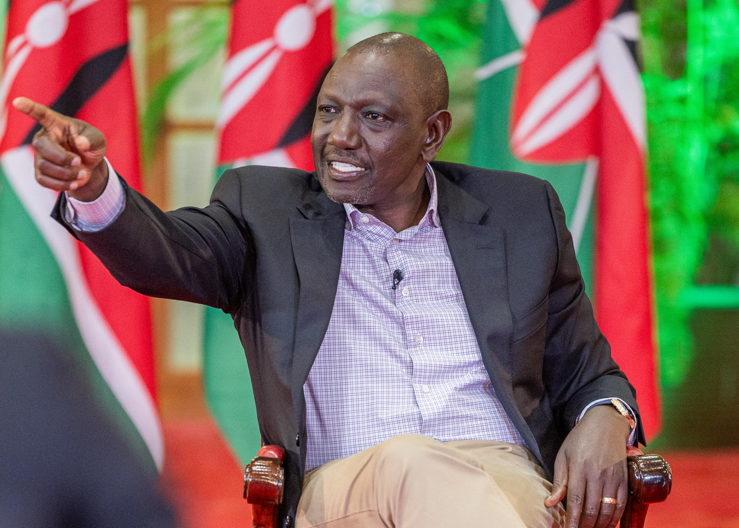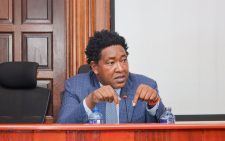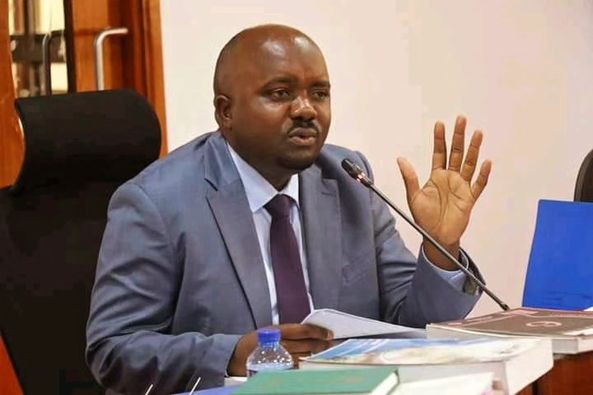Ruto’s ‘handcheques’ claim exposes rot in political class

The politics of “handcheques” – a term that cleverly fuses the transactional nature of political loyalty with the infamous “handshake” culture of elite deal-making – has reached a new low with President William Ruto’s explosive claim that his former deputy, Rigathi Gachagua, demanded a staggering Sh10 billion in exchange for political support in the Mt Kenya region.
If true, this revelation is not just a damning indictment of Gachagua’s character but a searing expose of the rot that festers within Kenya’s political class.
It paints a grim picture of a system where loyalty is a commodity to be bought and sold, where elected leaders treat public office as a personal ATM, and where the electorate’s trust is reduced to a bargaining chip in a high-stakes game of greed.
This is not leadership; it is a betrayal of the Kenyan people, and those who engage in such practices deserve nothing less than our unreserved contempt.
Ruto’s assertion, made during a media roundtable on March 31, alleges that Gachagua threatened to sabotage his presidency –potentially rendering him a one-term leader – unless the Sh10 billion was paid to “organise politics” in Mount Kenya.
The figure is astronomical, even by the standards of Kenya’s notoriously lavish political spending.
To put it in perspective, Sh10 billion could fund over 200,000 jobs in sectors like housing or agriculture, as some have pointed out, or provide critical infrastructure in a region that has long complained of neglect.
Instead, if Ruto’s claim holds water, Gachagua saw fit to demand it as a personal ransom for his allegiance.
This is not the behaviour of a statesman but of a mercenary, a man who views his constituents not as citizens to serve but as pawns to leverage for profit.
If this accusation is true – and we must emphasize the “if,” given the lack of concrete evidence beyond Ruto’s word – it is a scandal that should provoke outrage across the political spectrum.
Elected leaders who resort to bribery or extortion to secure loyalty are a cancer on democracy.
They undermine the very principles of representation and accountability that underpin governance.
Gachagua, as deputy president, was entrusted with a mandate to serve all Kenyans, not to hold his boss hostage for a payday.
Such actions suggest a man more interested in lining his pockets than lifting his people, a leader who sees power as a means to personal enrichment rather than public good.
This is the kind of politics that has kept Kenya mired in corruption and stagnation, where the elite prosper while the masses languish.
But let’s not pretend Gachagua is an anomaly. The politics of “handcheques” is a well-worn playbook in Kenya.
From the rumours of MPs being bribed with Sh2 million each to pass the contentious Finance Bill 2024 to Gachagua’s own claim that Ruto offered him Sh2 billion to resign, the pattern is clear: money, not ideology or competence, is the currency of influence.
If both men’s allegations are accurate, we are witnessing a grotesque tit-for-tat between two leaders who seem more adept at writing cheques than writing policy.
Ruto’s refusal to pay Gachagua’s alleged Sh10 billion demand might cast him as a principled figure in this narrative, but his own history – littered with accusations of political deal-making – hardly absolves him of complicity in this system.
The real victims here are the Kenyan people, particularly those in Mount Kenya who backed the Ruto-Gachagua ticket in 2022 with near-messianic fervour.
They were promised development, unity, and a break from the old guard’s excesses.
Instead, they’ve been served a bitter dish of infighting and allegations that their votes were mere collateral in a financial standoff. If Gachagua did demand Sh10 billion, he effectively sold out his own region’s aspirations for a personal windfall.
And if Ruto’s administration has tolerated or enabled such behaviour, it exposes the hollowness of its anti-corruption rhetoric.
Either way, the electorate is left holding the bag, their trust trampled underfoot by leaders who treat governance like a marketplace.
This scandal – if substantiated – demands more than just finger-pointing. It calls for a reckoning.
Elected leaders who bribe or extort for loyalty should face the full weight of the law, not just the court of public opinion.
Gachagua’s impeachment in October 2024, on charges including corruption and divisive politics, was a start, but it’s not enough.
A leader willing to hold a presidency hostage for billions doesn’t deserve a slap on the wrist; they deserve a cell.
— The writer is a Communication Consultant














